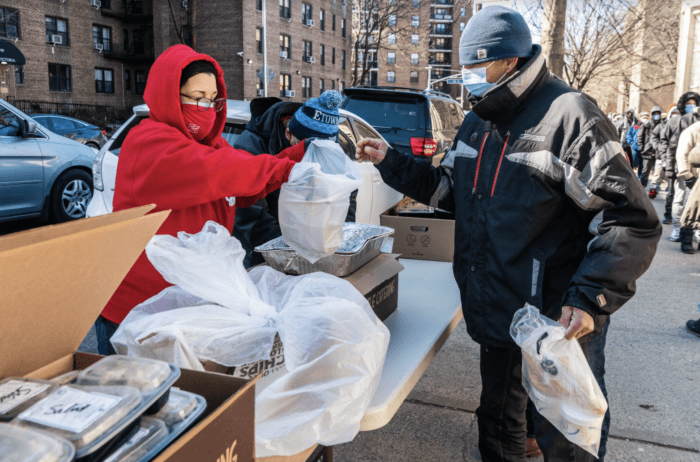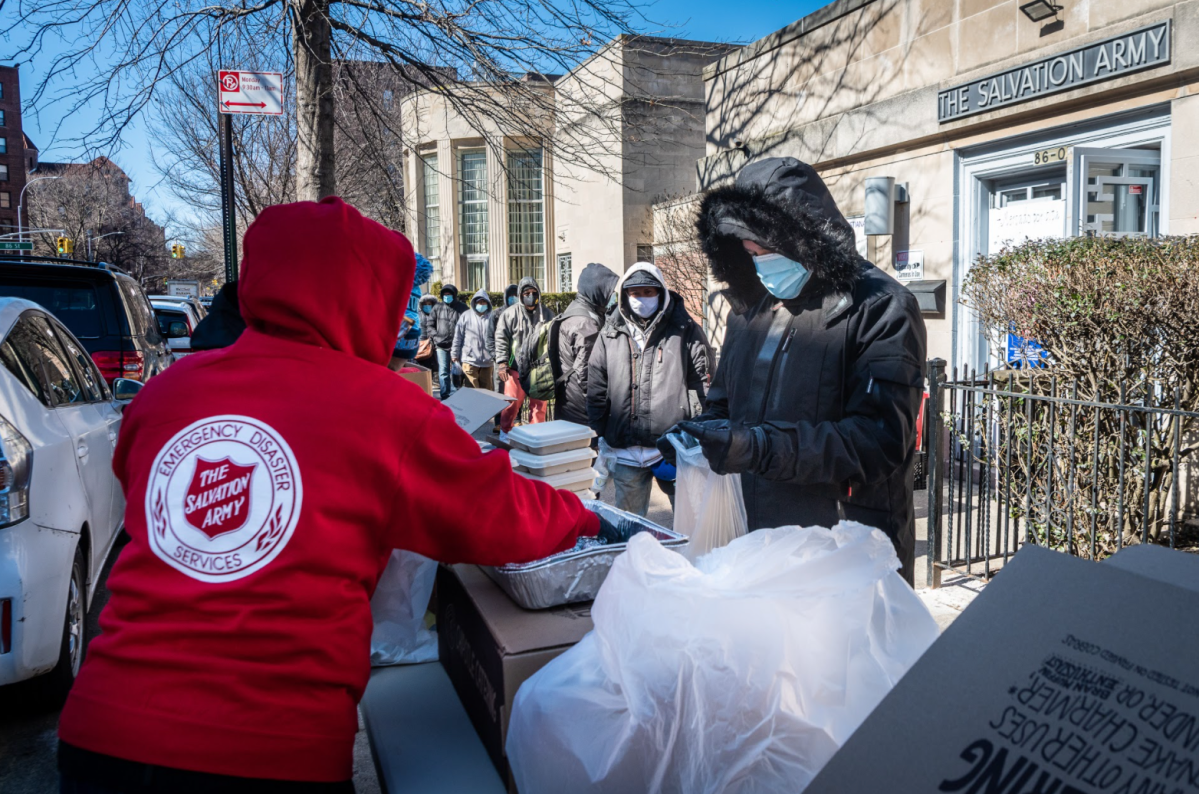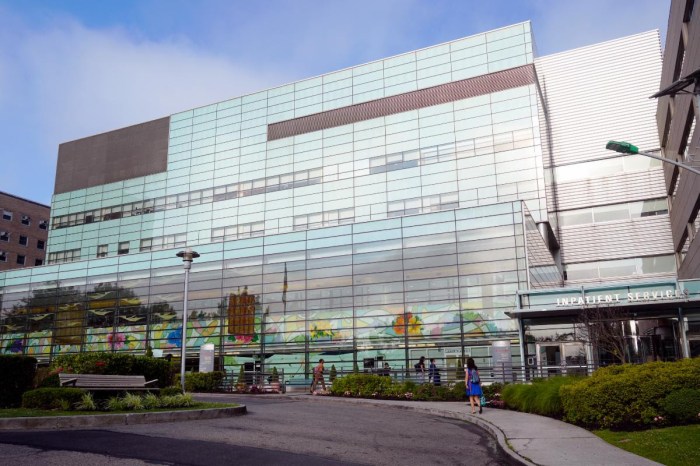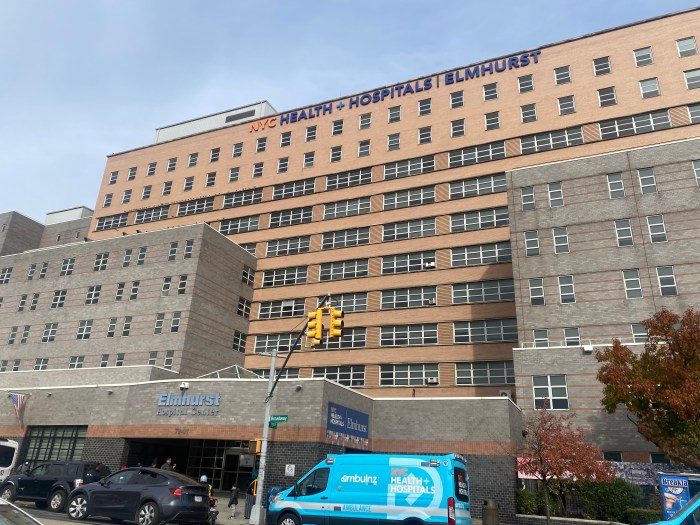Despite bitter cold wind chills, a long line of food-insecure New Yorkers formed on the sidewalk along 35th Avenue on March 2 outside the Salvation Army Queens Temple Corps Community Center in Jackson Heights.
The Jackson Heights Corp has seen an increase of 400 percent of residents requiring food assistance since the pandemic started, Salvation Army Major Guillermo Di Caterina said.
The Corp operates a soup kitchen serving between 300 and 400 community members Monday through Friday, as well as a food pantry program three days a week, providing meal boxes for 300 to 350 families a week.
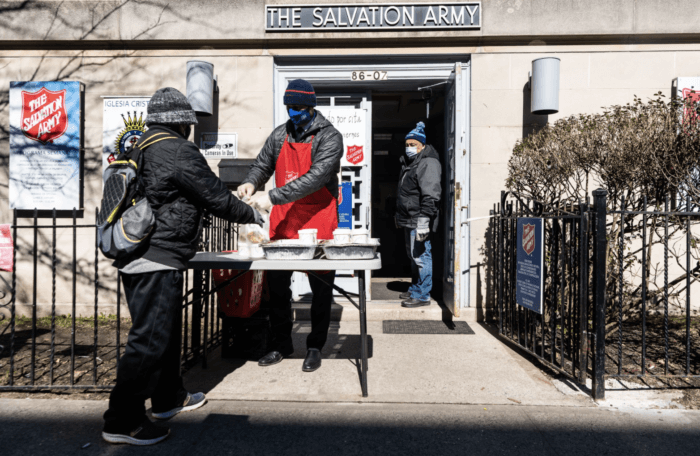
Di Caterina explained that before the pandemic, the soup kitchen served around 150 people a day and about 50 families a week received packages from the food pantry. The boxes include canned food, cereal, pasta and meat. City Harvest delivers four to six pallets of produce and dry food to the corp every Tuesday. Other food pantry staples are purchased with grants from the government.
Di Caterina said that they had a difficult time getting supplies at the beginning of the pandemic because everything was closed.
“We had to reach out to some vendors in different states to get the food delivered to us because people were hungry. When everything shut down, it was really bad,” he said.
Pre-COVID, people congregated in the oversized dining room to eat their meal from the soup kitchen. Since March 2020, they have to pick up their soup from one of the tables outside the Salvation Army, adhering to COVID-19 safety regulations.
The soup of the day, a freshly prepared turkey soup, was paired with 180 chicken and steak burritos, guacamole and salad donated by Chipotle. Di Caterina pointed out that the group of people seeking food assistance has become more diverse since the pandemic started.
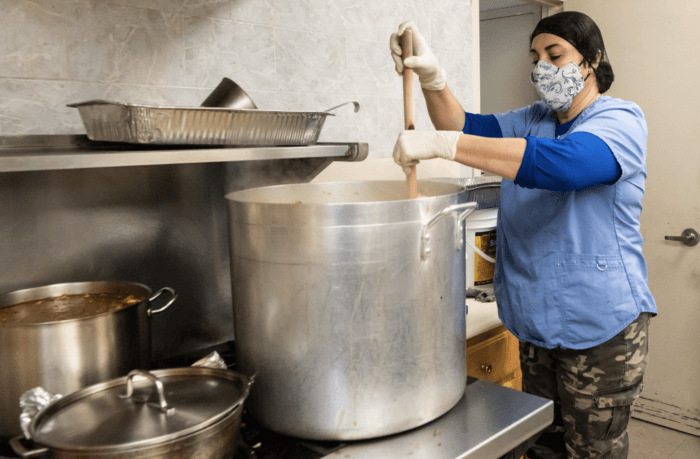
“Asians, people from India, Bangladesh. It’s very diverse, people that we haven’t seen before,” he explained, attributing the change to the staggering number of job losses in the community.
Di Caterina feels that the situation will improve little by little now that three different COVID-19 vaccinations are available, but the road to recovery will be long.
“Many people lost their jobs. And it’s going to be hard for everyone to get back to their jobs. A lot of businesses closed,” he said.
As New York City marked one year since its first known COVID-19 case on March 1, 2020, the Salvation Army of Greater New York has served more than 7 million meals to food-insecure New Yorkers since the outbreak of the pandemic. In comparison, the organization served 3.5 million meals in all of 2019.
